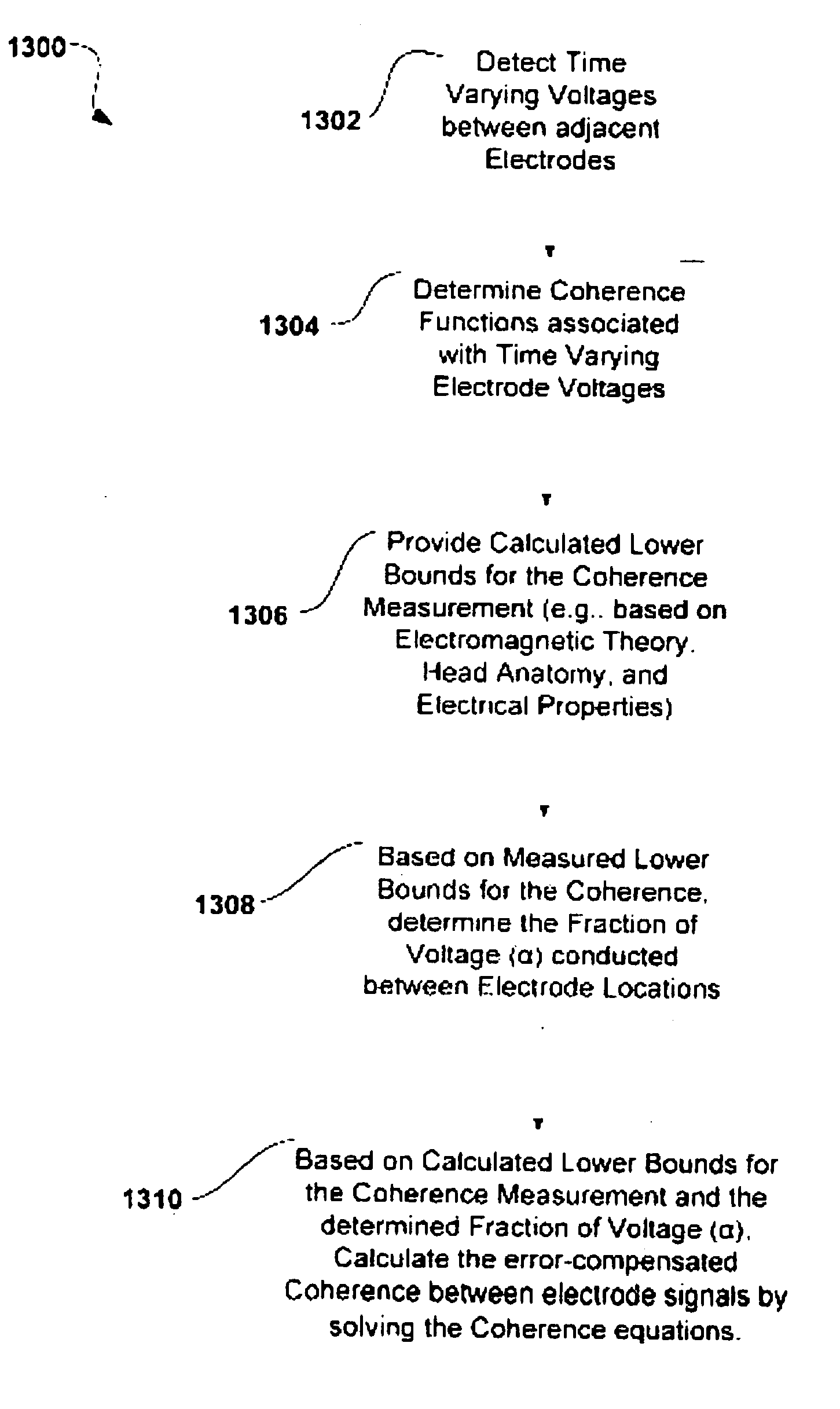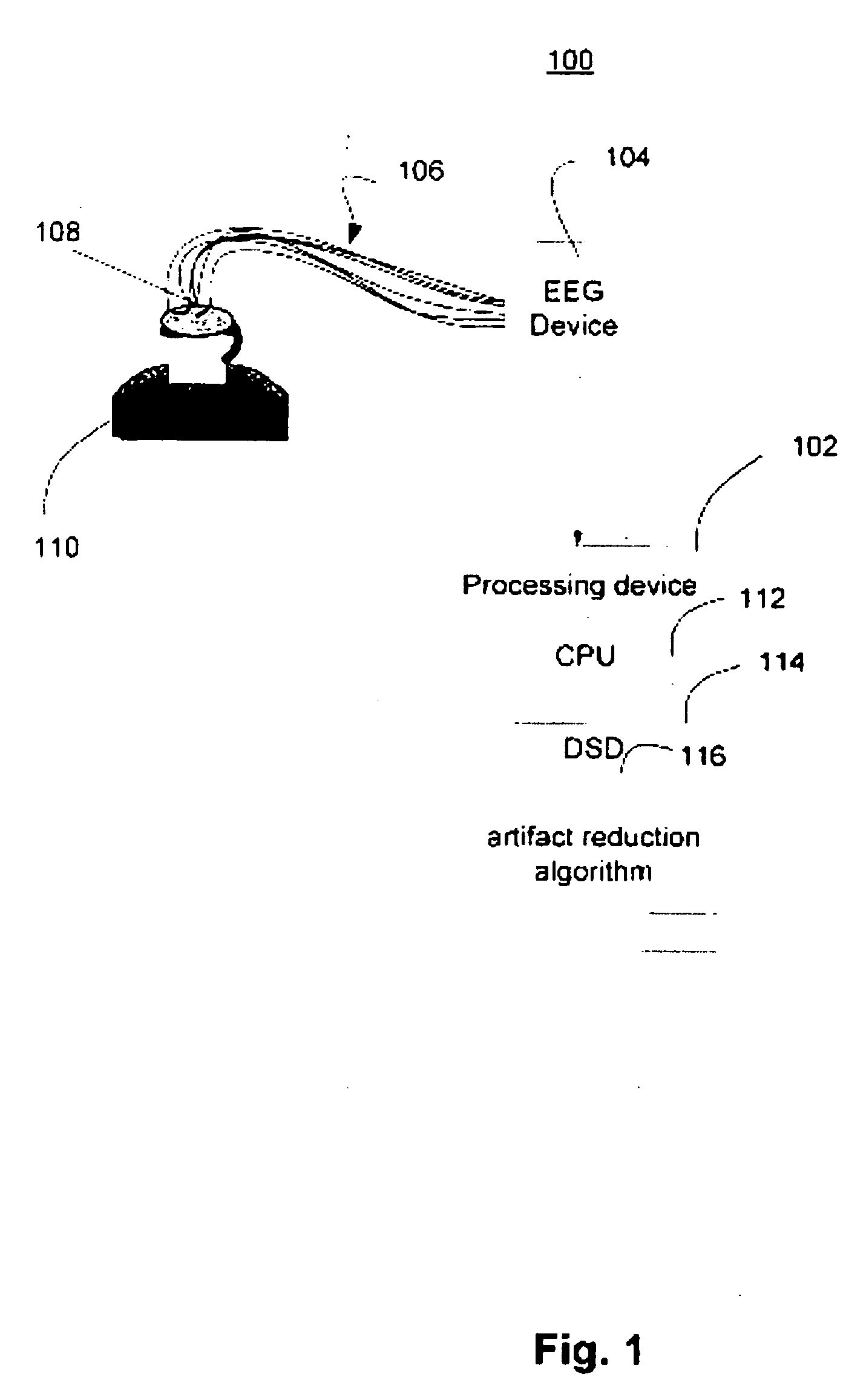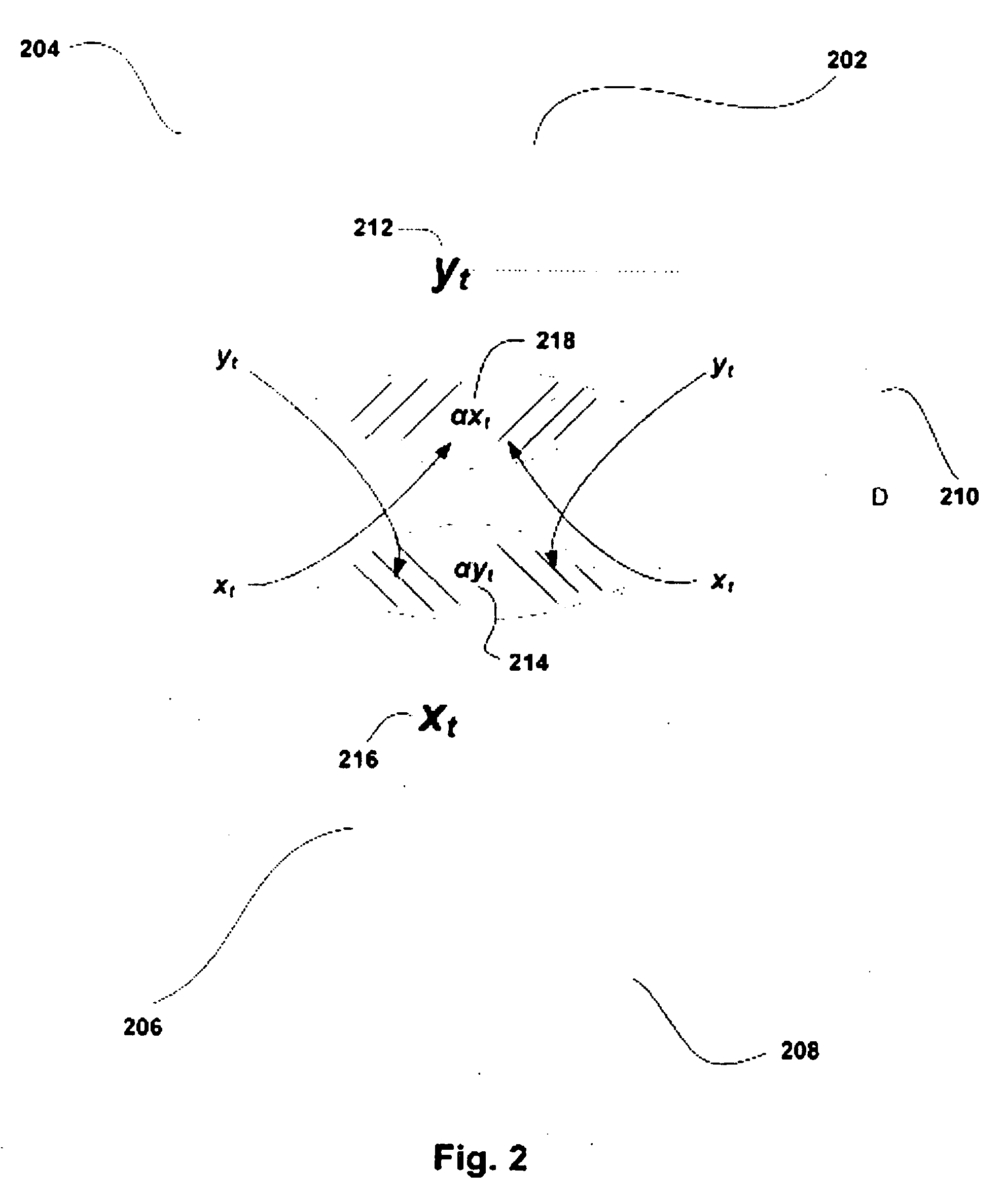Method for the spatial mapping of functional brain electrical activity
- Summary
- Abstract
- Description
- Claims
- Application Information
AI Technical Summary
Benefits of technology
Problems solved by technology
Method used
Image
Examples
Embodiment Construction
[0043] In the following description of the preferred embodiments, reference is made to the accompanying drawings that form a part hereof, and in which is shown by way of illustration a specific embodiment in which the invention may be practiced. It is to be understood that other embodiments may be utilized and structural changes may be made without departing from the scope of the present invention.
[0044] The following article discuss EGG techniques, and each is hereby incorporated herein by reference in its entirety: “Quantitative Analysis of Spatial Sampling Error in the Infant and Adult Electroencephalogram,” by Philip G. Grieve, Ronald Emerson, Joseph R. Isler and Raysmond I. Stark, Neuroimage 21(4) (2004):1260-74, received 22 May 2003, revised 22 Nov. 2003, accepted 25 Nov. 2003.
[0045] In some embodiments, methods and systems of the present invention include obtaining local synchrony information. “Local synchrony information,” as used herein, includes information that provides...
PUM
 Login to View More
Login to View More Abstract
Description
Claims
Application Information
 Login to View More
Login to View More - R&D
- Intellectual Property
- Life Sciences
- Materials
- Tech Scout
- Unparalleled Data Quality
- Higher Quality Content
- 60% Fewer Hallucinations
Browse by: Latest US Patents, China's latest patents, Technical Efficacy Thesaurus, Application Domain, Technology Topic, Popular Technical Reports.
© 2025 PatSnap. All rights reserved.Legal|Privacy policy|Modern Slavery Act Transparency Statement|Sitemap|About US| Contact US: help@patsnap.com



